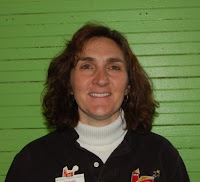
With Earth Day approaching and our area experiencing near drought conditions, now is the perfect time to teach your child some simple ways to “Save the Earth”, starting with a tangible resource your child uses every day, water.
For starters, help your child realize just how much we use water every day. Young children may only think of really obvious uses, such as drinking or bathing. As you go about your day, challenge your child to notice when you use water: doing laundry, washing dishes, and see what else she comes up with. When outside, notice all the plants and animals that need water as well as its other uses such as washing the car, filling the pool, or even for birds to take a bath.
Next, help your child realize how he or she can help conserve water. One very simple idea that I use in my home is instead of dumping the rest of our water bottles and drinking glasses from dinner down the drain, we use that water to fill the dog’s water bowl and water the plants. We try to remember to turn off the tap while brushing our teeth and turn down the water pressure when soaping up in the shower. Try this: Have your child plug the drain while taking a shower so he or she can observe how much water he uses. Do it again for his next shower, but have him challenge himself to use less.
Take advantage of the lovely spring weather and go for a walk along a nearby pond or stream. The NRT of Easton’s Sheep Pasture has a nice little pond where you can see turtles, frogs, ducks, dragonflies, and plants. You may have a stream in your neighborhood, or try a Massachusetts State Park. Talk about all the plants and animals that need the water. If you can get close to the water, you can make an underwater scope to see what lives under the water too.
Then notice any trash around the water. Talk about what could be harmed by this trash. Could birds or fish eat it, or get tangled up in it? If it is safe, we try to put on some rubber gloves and dispose of the trash in a proper container. The kids always feel good about helping the animals and plants who make this area their home. Remind your child that even litter that is not near the water can eventually make its way to the river by wind or rainstorms, so it is important not to litter anywhere. Even in their small way, kids can make a big difference.
For more Earth Day fun, don’t miss the Museum’s Earth Day/animal related creative movement with Mariah Bradbury on Thursday April 19 at 10 & 11 AM. Or stop by The Children’s Museum’s Wild Place any other Thursday afternoon, 1:30-2:15, through the end of May for "A Wild Time", where we will be exploring nature through science experiments and crafts.
 Michelle VanVoorhis is a mom, a licensed elementary school teacher, educator at the Children's Museum where she teaches Summer Mini Camps and many drop-in programs through the year, including "A Wild Time". She contributes to the Museum's blog on a regular basis.
Michelle VanVoorhis is a mom, a licensed elementary school teacher, educator at the Children's Museum where she teaches Summer Mini Camps and many drop-in programs through the year, including "A Wild Time". She contributes to the Museum's blog on a regular basis.
 Have you been enjoying the warm weather? Thinking summer already? School’s going to be out soon enough and that means it is time to think about summer. Many parents look to summer camps to offer a range of activities and playmates for their children during the summer.
Have you been enjoying the warm weather? Thinking summer already? School’s going to be out soon enough and that means it is time to think about summer. Many parents look to summer camps to offer a range of activities and playmates for their children during the summer.


